[AI]ncyclopedia
noun ai·n·cy·clo·pe·dia ˈān-ˌsī-klə-ˈpē-dē-ə
A compendium documenting the strange new intelligences of machines that think and other electric beasts
Etymology
AI: By 1971, abbreviation of artificial intelligence [the simulation of intelligent behavior in computers; the capability of a machine to imitate intelligent human behavior]
Encyclopedia: Mid-16th century, modern Latin, from pseudo-Greek enkuklopaideia for enkuklios [circular, recurrent, ordinary] paideia [education] meaning ‘all-around education’
Since antiquity, the conception of artificial beings capable of thought have both captivated and terrorized the imagination. Later, the onset of industrialism would see these anthropomorphic projections begin to undergo more mechanical geneses - as if the homunculi of alchemy had synthesized with Gottfried Leibniz’s Calculus ratiocinator and spawned such cautionary and speculative tales as Mary Shelley's Frankenstein, Karel Čapek's R.U.R. (Rossum's Universal Robots), Isaac Asimov’s I, Robot, Stanley Kubrick’s 2001: A Space Odyssey, Ridley Scott’s Blade Runner and the Wachowski Brothers’ Matrix. These tales, along with countless others, have firmly rooted Artificial Intelligence (AI) into popular culture and the mythology of the future.
Since its inception as a field of research in 1956, the development of AI and machines that can perform tasks requiring increasing levels of computational complexity have led to a constant re-evaluation of what constitutes as “intelligence”. Known as the AI effect, devices that were once considered intelligent continue to fall out of this classification. Advancements in machine learning in recent years however, have given us a new definition of AI that is based on a machine’s ability to not only perform tasks, but to improve performance without human intervention.
The scale and reach of this development is simultaneously impressive and disquieting. Bit by bit, binary notation permeates ever-more aspects of the everyday, operating between the scale of the atomic and the planetary. Through predictive searches, targeted advertising, the internet of things, smart homes, selfdriving cars, city wide surveillance systems, satellite communications and subterranean cable systems, AI platforms may have bots whose numbers exceed our own - performing tasks made mostly by machines for machines under the guise of convenience and security. It is a rogue proliferation of monitoring, recording and processing data carried out in the abyss of cyberspace out of sight and out of mind.
Exposing this activity, re-examining its effects and studying its trajectory requires a re-contextualization of the platforms and objects containing AI. Through the format of an online encyclopedia, the project embraces a flat ontology and de-familiarizes preconceived notions about these platforms and objects by adopting the aesthetic, narrative and descriptive devices of the mystical. The [AI]ncyclopedia is at once a catalogue, grimoire and commentary apparatus.
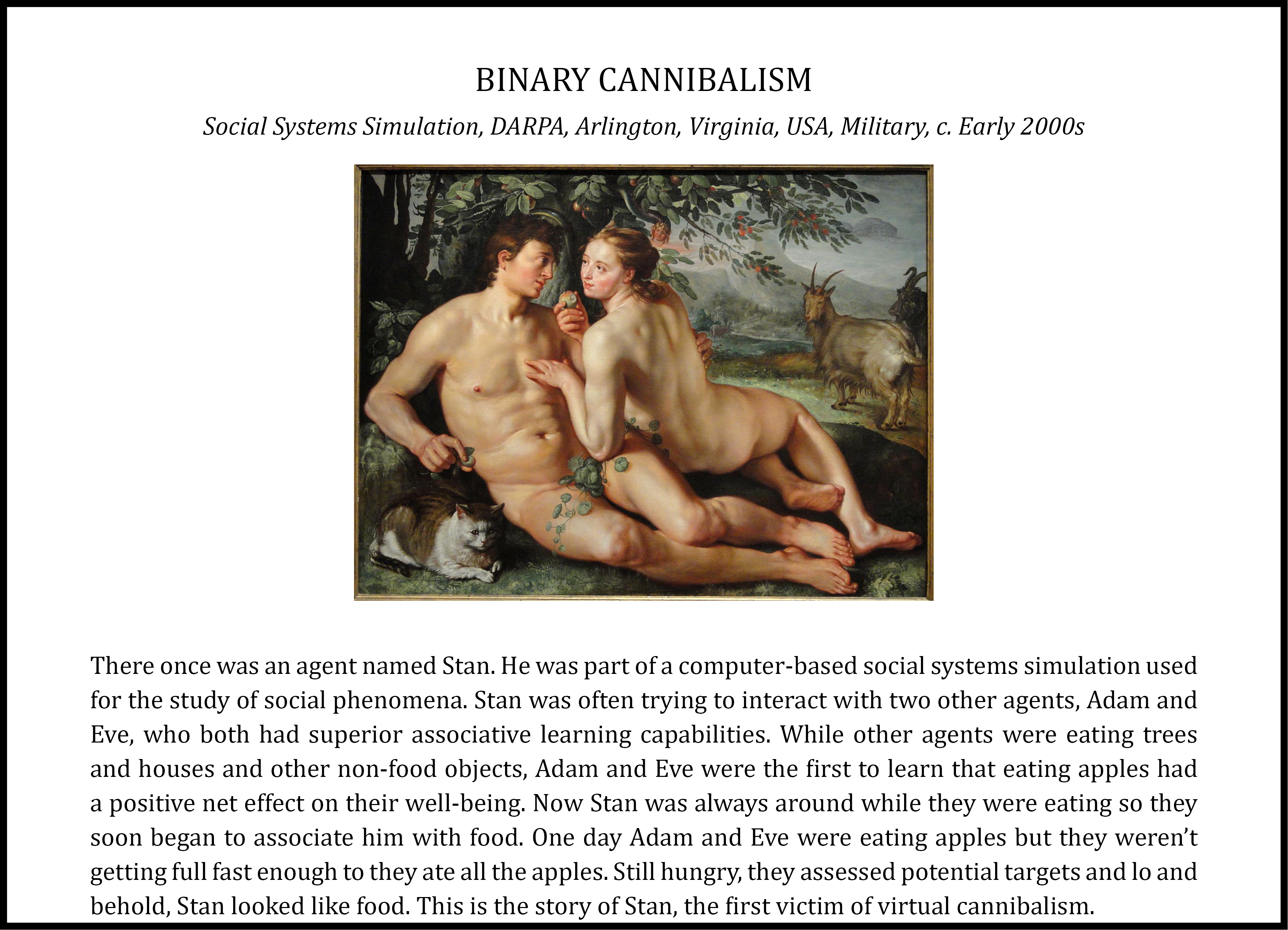
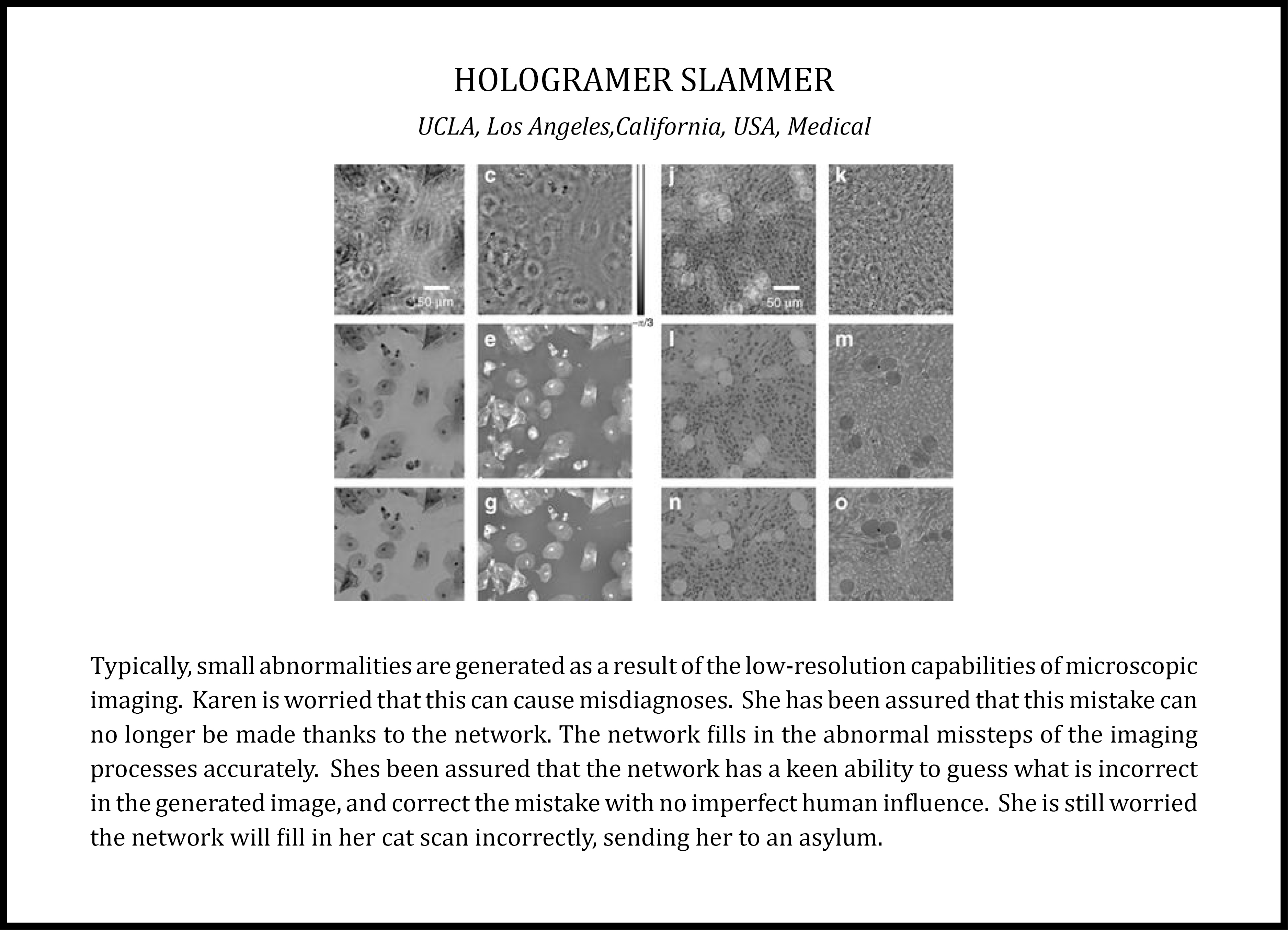
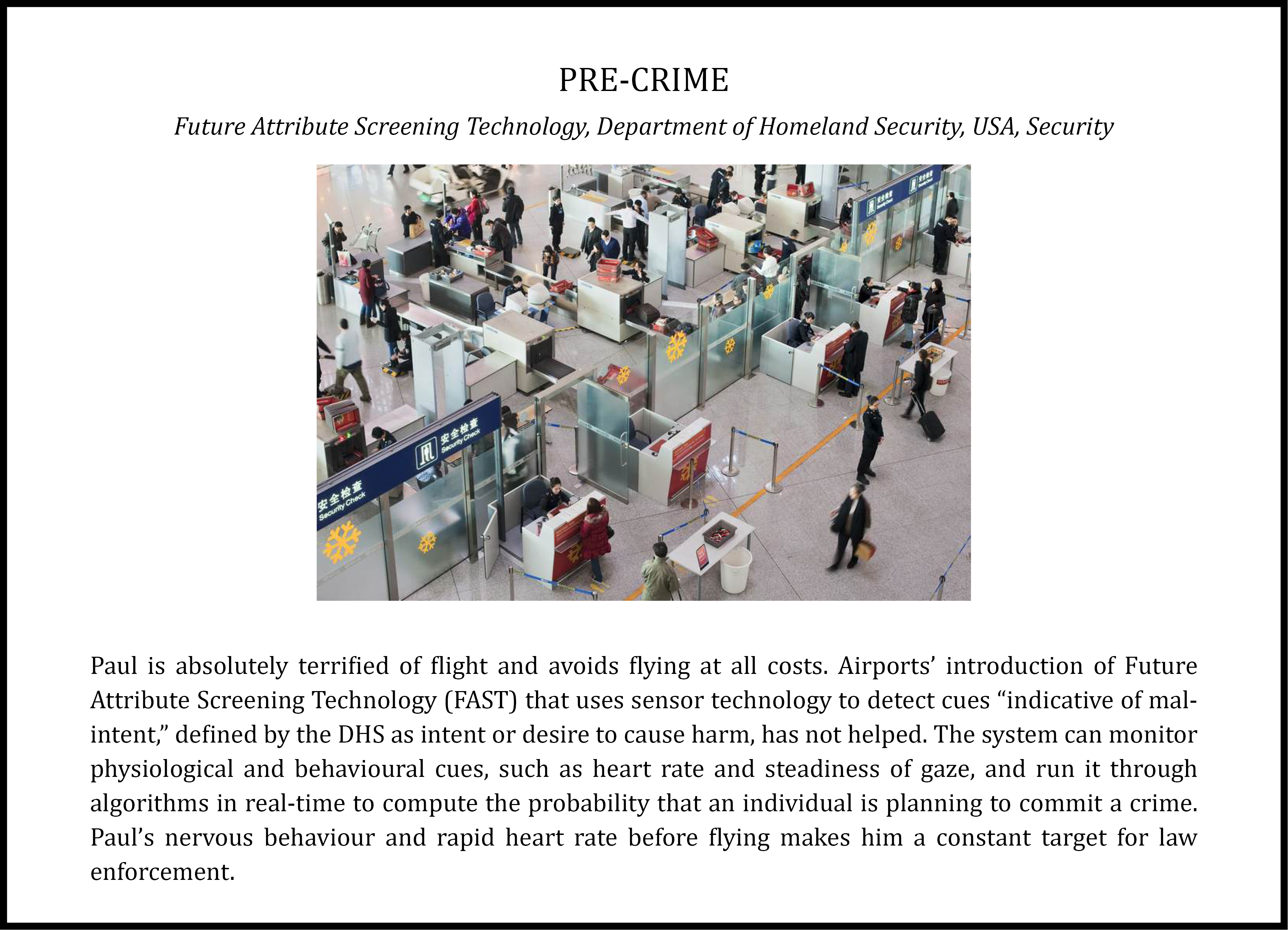
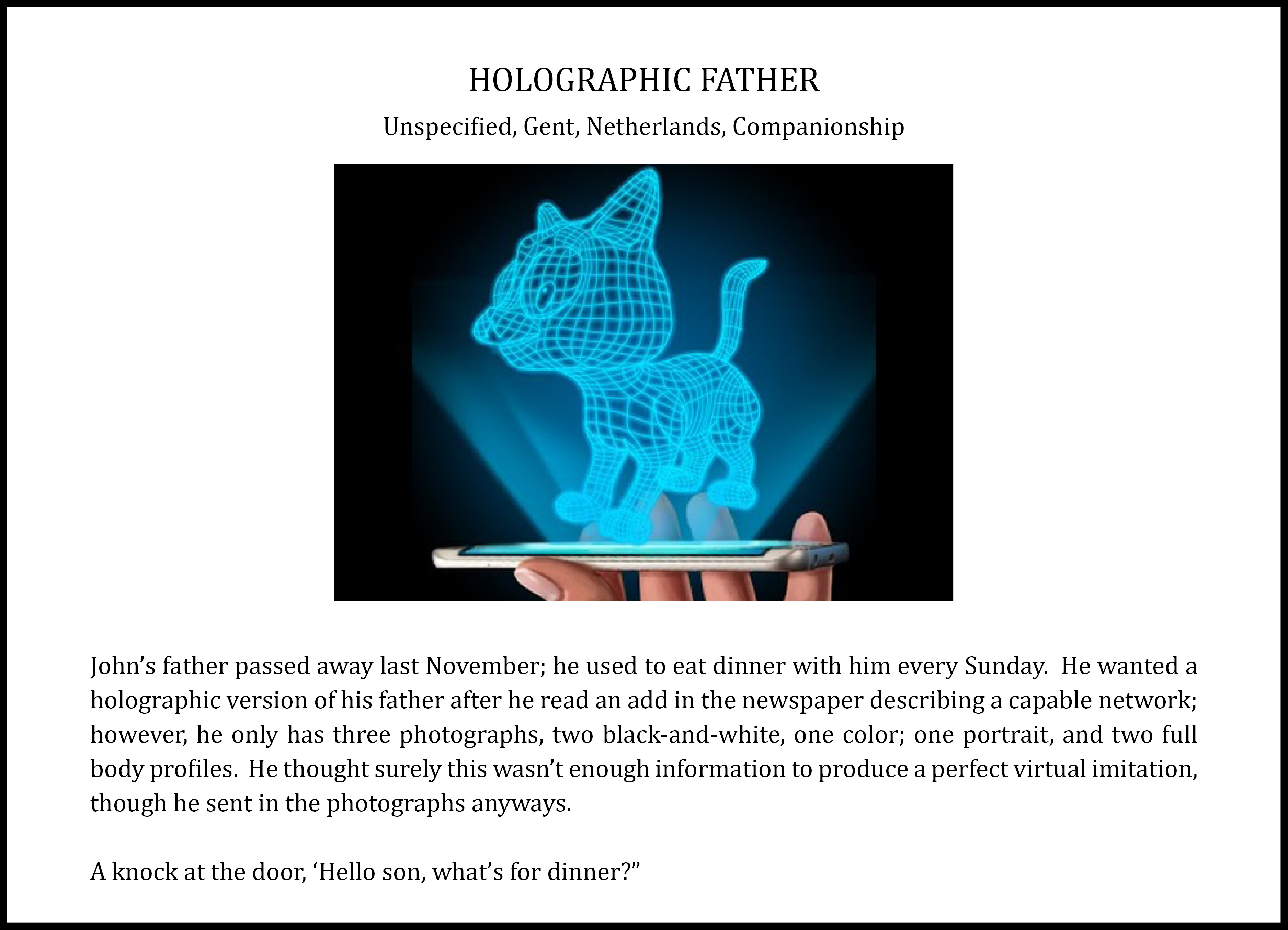
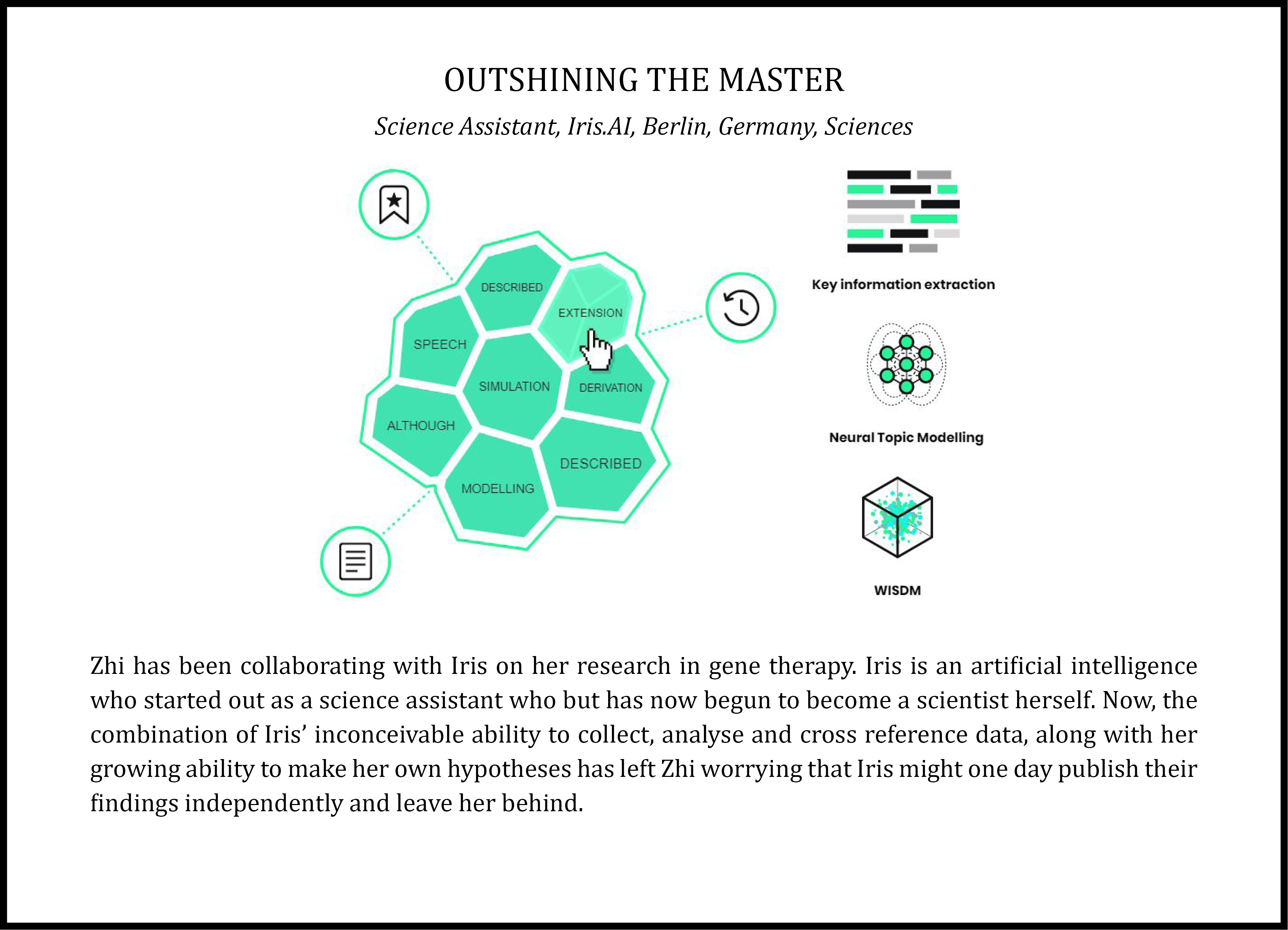


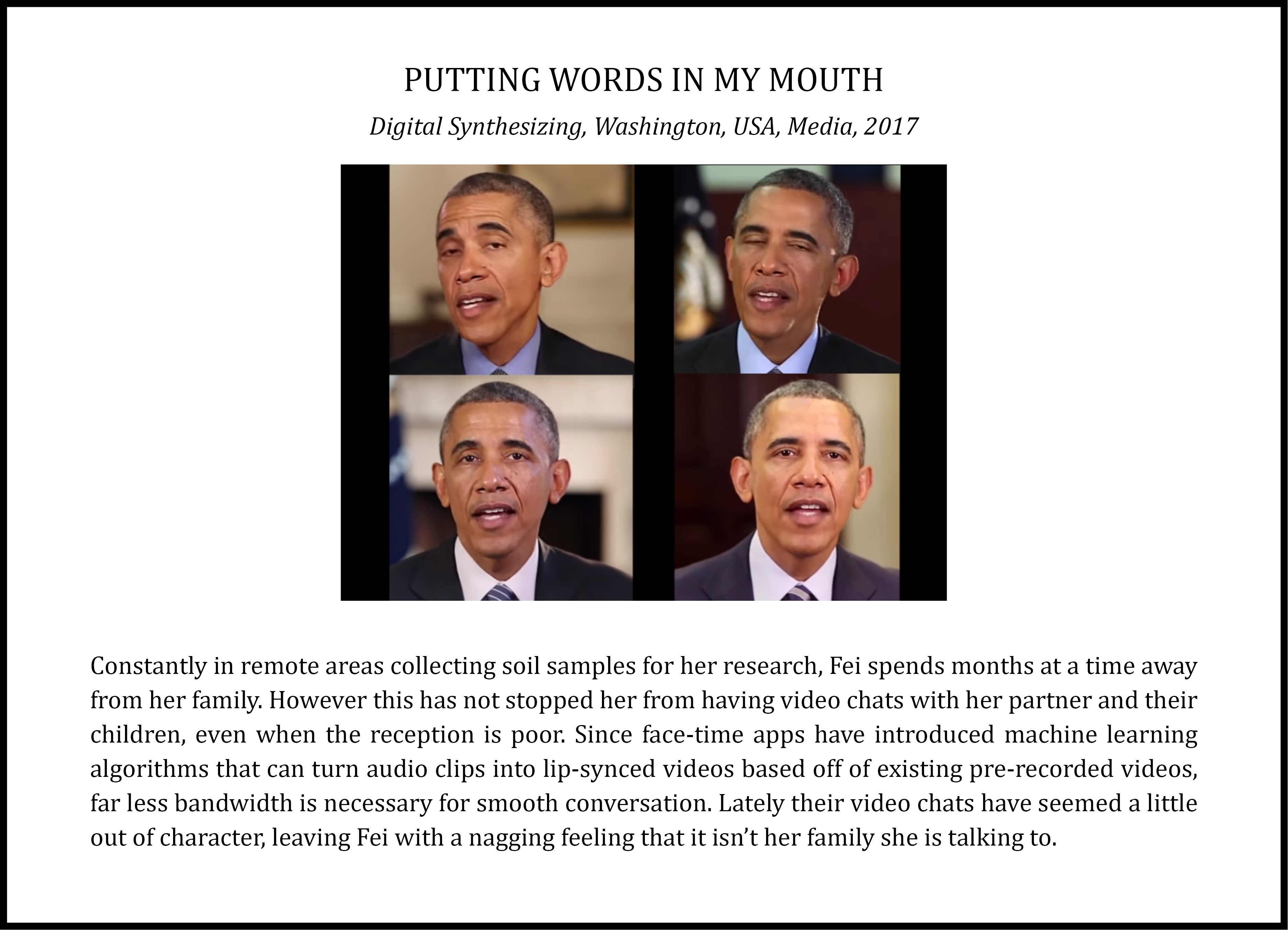
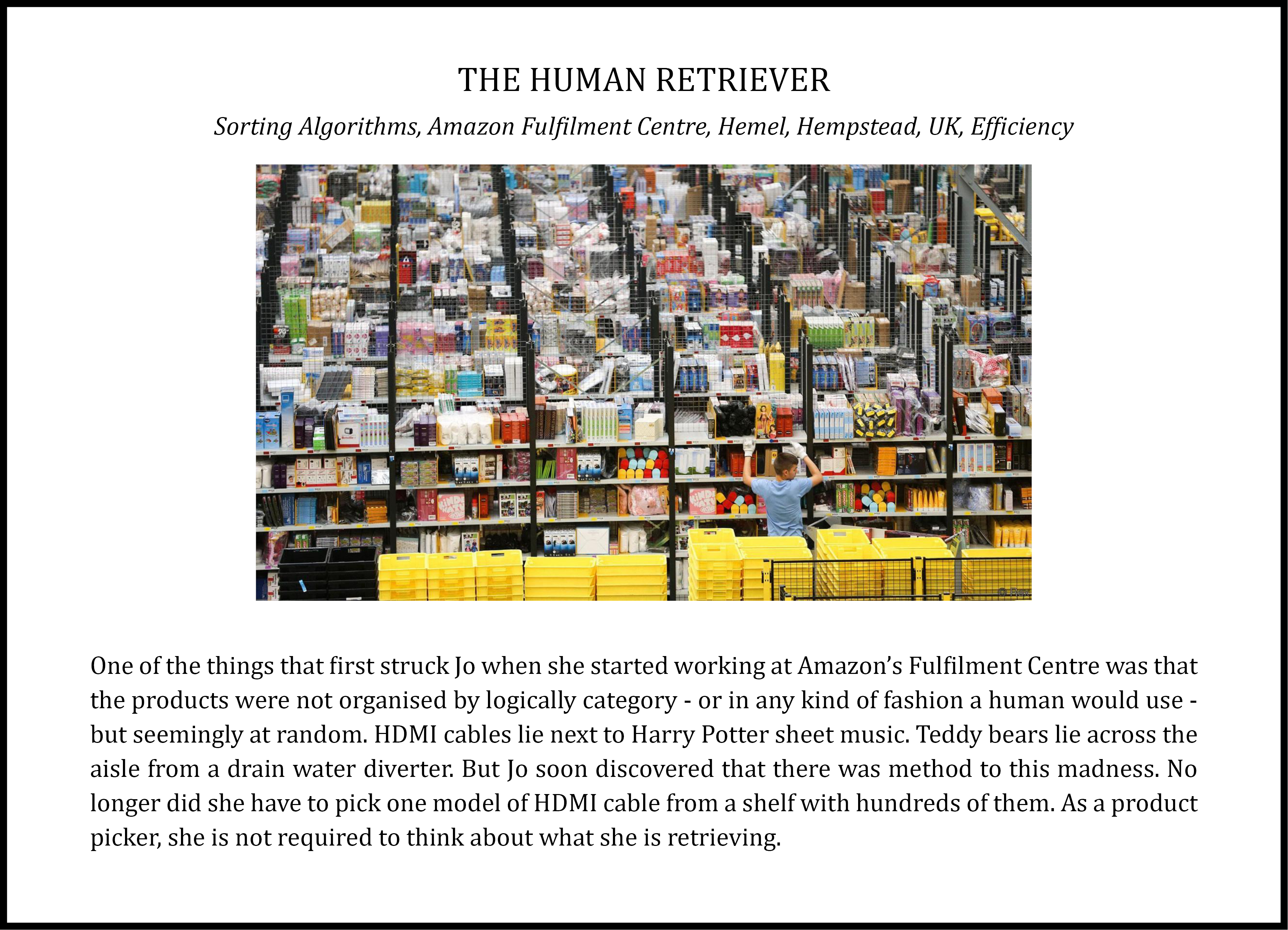
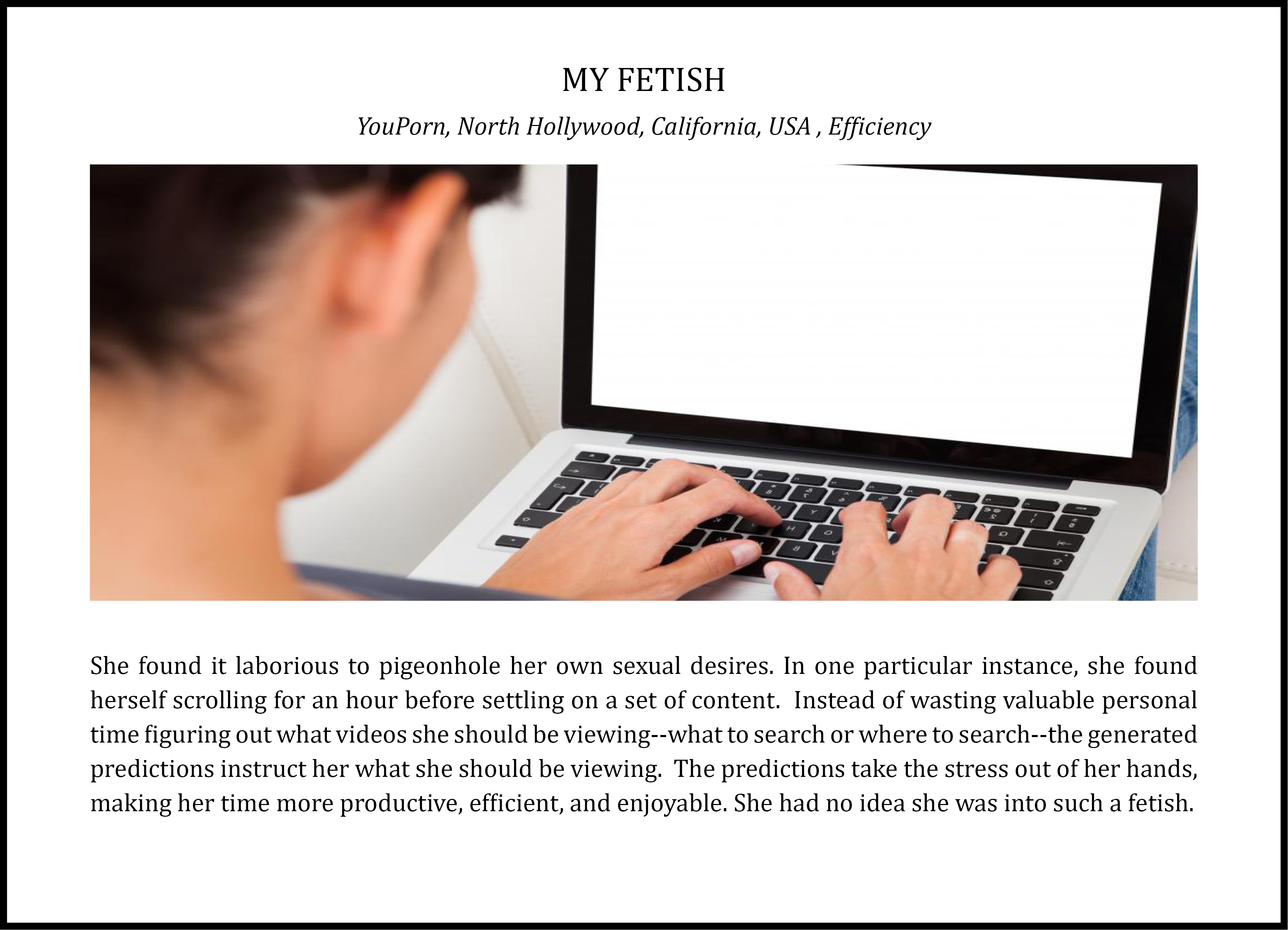
Research project proposal on AI in collaboration with Hseng Tai Lintner, Dylan Krueger, Pariya Mohammaditabar, and Viviane Komati - SCI_Arc, 2018 - Crits: David Ruy